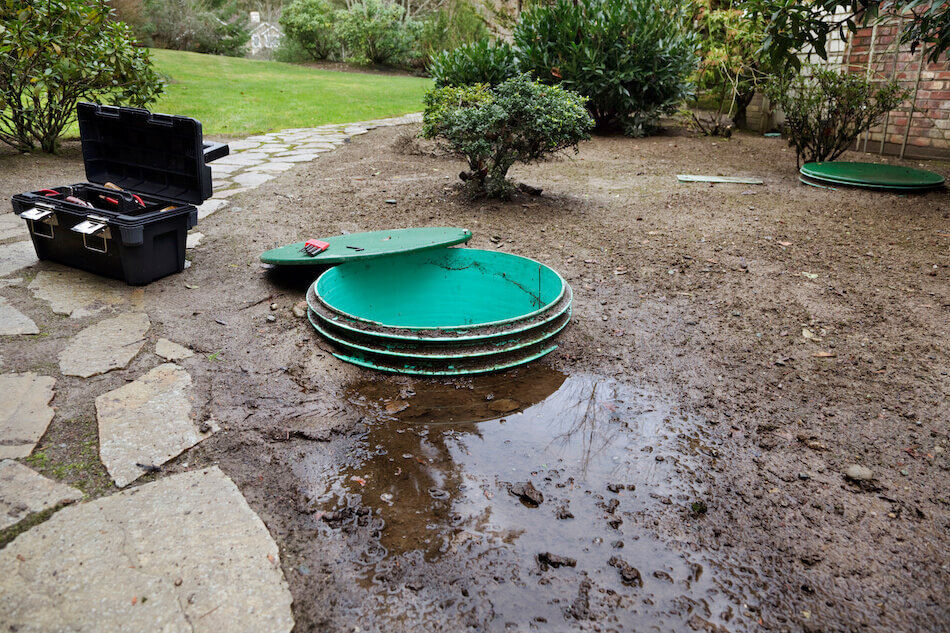 Selling a property can be a complex endeavor, filled with numerous considerations. Among the potential hurdles that homeowners may face is the issue of a failed septic system. Whether due to age, neglect, or unforeseen circumstances, a malfunctioning septic system can raise doubts about the feasibility of selling a house.
Selling a property can be a complex endeavor, filled with numerous considerations. Among the potential hurdles that homeowners may face is the issue of a failed septic system. Whether due to age, neglect, or unforeseen circumstances, a malfunctioning septic system can raise doubts about the feasibility of selling a house.
Is it one of the signs you should sell your home to a cash investor? Do you need to repair or replace the system? This article delves into the nuances of navigating such a situation, exploring the options, challenges, and potential solutions when dealing with a property burdened by a failing septic system.
For informational purposes only. Always consult with a licensed real estate professional before proceeding with any real estate transaction.
Get a Cash Offer on Your Home With Cash Is King.
Want to skip the hassle of selling your home? We’ll make you a Guaranteed Cash offer. Get started now for free!
What is a Septic System?
Septic systems are an effective and efficient way to manage wastewater and sewage, and they’re especially beneficial for areas with limited access to a public sewage system. There are different types of septic systems, but at its core, a septic system consists of a septic tank and a drain field, which are connected by a system of pipes.
The septic tank holds the wastewater and sewage, allowing the solids to settle to the bottom. The wastewater is then pushed out into the drainage field, where it’s absorbed into the soil.
A failed system can be a big problem, leading to health and environmental hazards. It’s important to maintain a septic system to ensure its proper functioning.
Signs and Causes of Septic System Failure
If you’re preparing your home for a quick sale, a quick diagnosis of septic system failure is vital. Signs of septic system issues may include unpleasant odors, slow flushing toilets, and pools of water in the yard. It can be caused by improper maintenance or a defective system. As a homeowner, you must familiarize yourself with these signs and causes to help prevent a septic system failure.
Improper maintenance is one of the most common causes of septic system failure. This can include anything from not having the tank pumped out or serviced regularly to flushing items that can cause blockages, such as grease, diapers, paper towels, and other non-biodegradable items. A defective septic system can also be a cause of septic system failure. This could be due to a faulty design, not being installed correctly, or a broken component.
It’s important to have a regular septic system inspection to identify any potential issues before they become a problem. Routine maintenance for a working septic system can help ensure it runs properly and avoid the need to sell your home with a failed system.
Impact of a Failed Septic System on Selling a House
The impact of a failed septic system on selling a house can be significant, leading to potential buyers looking elsewhere. It’s important to be aware of the potential issues that can arise when a septic system fails, as this can significantly impact the sale of a house.
Financial Impact:
- Potential buyers may be unwilling to cover the cost of repairs or replacement.
- A failed septic system can decrease the value of a home, leading to lower offers from buyers.
Negotiation Impact:
- Buyers may try to negotiate a lower price due to the cost of septic system repairs.
- The sale process can be delayed if repairs or replacements need to be done before closing.
Overall, knowing the potential implications of a failed septic system when selling a home is important. Taking the time to address any issues can help ensure a smooth sale process and a successful outcome.
Options for Selling a House With a Failed Septic System
Although it can be challenging, selling a house with a failed septic system is still possible. If you’re wondering how to sell a home that needs repairs of this kind, knowing the options available can help you make an informed decision and ensure the sale process runs smoothly.
Fix It Before Selling – Worth the Cost?
The safest route is fixing your septic system before listing your home. But is it the best choice for you?
It’s important to be aware of the potential costs that may be incurred if you choose to repair or replace the septic system. Depending on the system’s condition, you may get away with a simple repair rather than a costly replacement. However, if it’s too far gone, you may need to get a new septic system altogether.
It would be best if you also considered the impact of any required repairs or replacements on the house’s final sale price. If necessary, you may have to lower the price to attract buyers and offset the cost of the repairs.
Pros:
- Bigger pool of buyers – opens your home to traditional mortgage buyers
- Higher sale price – you won’t need to slash your asking price
- Faster sale process – no surprises or delays caused by the septic issue
- Peace of mind – one less thing to worry about during closing
Cons:
- Upfront costs – you’ll need $3,000-$20,000 ready to spend
- Time delays – permits and major repairs can take weeks or months
- Uncertain return – you might not recoup the full repair cost
- Risk of other issues – digging might uncover more problems
Bottom line: This option makes sense if you’re not in a rush and have the cash on hand.
Sell As-Is on the Open Market
Want to skip the repair hassle? You can list your home “as-is” and be upfront about the septic problem.
Be prepared for a different kind of selling experience. Many potential buyers will walk away as soon as they hear about the septic issues. That’s normal. You’re looking for that special buyer who’s willing to take on the project—perhaps someone looking for a fixer-upper or an investor who renovates homes.
Pros:
- No repairs for you to do – the buyer takes on the problem
- More straightforward process – what the buyer sees is what they get
Cons:
- MUCH smaller buyer pool – mostly limited to cash buyers
- Lower sale price – expect a discount bigger than the repair costs
- Longer time on market – fewer buyers means more waiting
- Possible financing problems – most mortgage companies won’t approve loans
- Disclosure requirements – you MUST tell buyers about the issue
Keep in mind: Even when selling as-is, you still need to disclose the septic problem. Hiding it can lead to lawsuits later.
Skip the Hassle and Sell Your Home for Cash
The ability to sell a home with issues like a bad septic system is one of the most significant benefits of selling your house for cash. This is often a more appealing option as it allows the homeowner to avoid the time and expense associated with traditional sales methods combined with the cost of repairing or replacing the septic system.
Additionally, selling a home for cash can be completed in days rather than months. This is especially beneficial for homeowners who need to move quickly or don’t have the time or resources to invest in a lengthy home sale or repair process.
By selling for cash, homeowners can also avoid the stress of dealing with real estate agents and other parties involved in a traditional sale. Furthermore, they can avoid the added costs associated with repairs and renovations that may be needed to make the home more attractive to buyers.
Pros:
- Fastest option – can close in as little as 7-14 days
- Zero repair costs – they buy the property exactly as-is
- No showings or staging – one inspection and you’re done
- No financing issues – cash means no lender requirements
- Simple process – fewer contingencies and paperwork
Cons:
- Lowest sale price – expect 60-80% of market value
- Limited negotiation – less room to haggle over price
- Potential for predatory offers – some investors take advantage
This option works best if: You need to move quickly, can’t afford repairs, or the house has multiple serious issues beyond just the septic.
Tips and Considerations for Selling a House With Sewer Problems
Selling a home with sewer problems can be complex, requiring careful consideration. Homeowners should be aware of the following:
Before Selling:
- Research local regulations and requirements for septic systems.
- Have a professional inspect the system to determine whether repairs or a new system is required.
During Sale:
- Be honest about any existing sewer issues, as you may violate sellers’ disclosure laws by failing to do so.
- Consider lowering the price of your home so buyers are more motivated to fix the septic system themselves.
Homeowners need to be mindful when selling a home with sewer problems. Careful consideration of local regulations, inspections, and disclosure requirements are all key steps in the process. Doing so can help ensure a smooth sale and make the experience more enjoyable for all parties involved.
For informational purposes only. Always consult with a licensed real estate professional before proceeding with any real estate transaction.
Successful Home Sales Despite Septic Tank Problems
In the world of real estate, a failed septic system doesn’t necessarily spell disaster for homeowners looking to sell their property. While it presents its share of challenges, just like selling a fixer-upper property does, it is by no means an insurmountable obstacle. With careful planning, consultation with experts, and adherence to local regulations, homeowners can explore various avenues to address the issue.
Whether through repairs, upgrades, or disclosure, there are viable paths forward. The key lies in transparency, clear communication, and informed decision-making, ensuring a smooth and successful house sale—even in the face of a failed septic system.
Get a Cash Offer On Your Home
No Commission. No Hassle. You pick the closing date.
CashIsKing.com works with cash investors on a daily basis and partners with investors who can deliver quick cash offers on properties of all conditions and locations. Why wait? Get a cash offer from an investor today!
Get a Cash Offer

